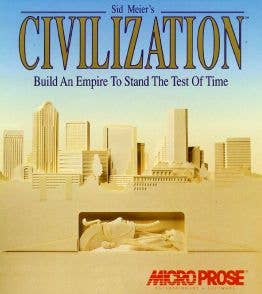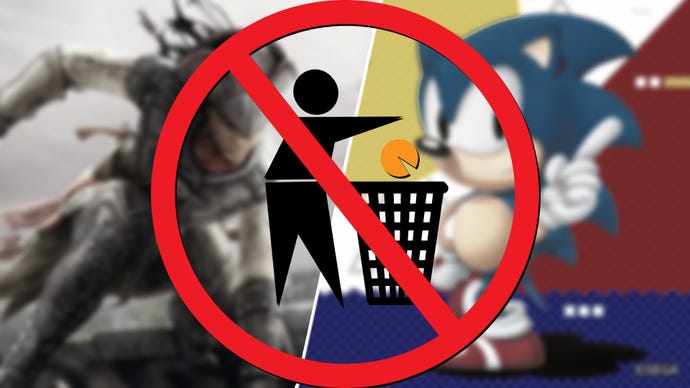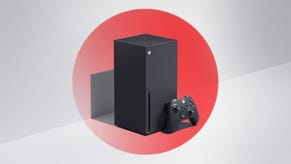If publishers want to delist old games, that’s fine – so long as they accept Abandonware status
Publishers should avoid being litigious towards those who continue to distribute the games that they delist.
This week has delivered yet another episode in the endless headache-inducing drama around video game preservation, as Ubisoft updated the Steam listing for Assassin’s Creed Liberation to announce the game would soon be delisted – prompting anger from preservationists and fans across the internet.
To be honest, the original circumstances around Assassin’s Creed Liberation looked pretty bad. The game’s Steam page was marked with an announcement that sales of the game would cease in September – pretty standard, if rubbish – but also with text that suggested that even those who already owned the game would no longer be able to download and install it after a certain date, too. And that… well, that’s a much worse look.
In this instance, the additional anger over the game being removed from paying customers was actually mistaken. A poorly-written prompt on Steam made people misunderstand what was actually going on. Rather than the game at large being deactivated for all, it was just the multiplayer component shutting down on that date – meaning that certain features will be unavailable, but the ‘base game’ will remain accessible for those who dropped cold, hard cash on it in the past. Once delisted, nobody new will be able to buy the game, however.


Any game preservationist, such as myself, would obviously rather that game servers be left online, or the game patched to allow for some sort of alternate online connectivity solution. But also, I’m a realist: these are companies trying to turn a profit, and keeping servers open for a game barely anybody is paying doesn’t make much sense. Mind you, I also don’t think withdrawing perfectly playable games from sale makes much sense either – just drop the price, note the lack of online, and let people continue to buy it if they want to. But, I digress.
I’m here to argue one simple thing: game publishers should be allowed to do what they want… with conditions. If they want to delist games from sale or even download without prompting warranted fury from preservationists, they need to understand and accept the inevitable consequences of their actions: that any delisted game will be downloaded through other means, and that players will often pull games apart to keep playing them.
What I can’t stand is when a publisher wants to have it both ways; they pull a game from sale, but then also try to suppress alternative distribution by fans in the name of squashing piracy or protecting their IP. Bluntly, if a game is delisted, publishers should embrace the fact it will become Abandonware.

If you’re unfamiliar with the term, Abandonware refers to a piece of software that is ignored by its owner or creator, which usually means there’s no official support for it and no official way to purchase it. The argument is that if the owner of the software has abandoned supporting and selling it, to some degree they've abandoned the copyright. This doesn't necessarily hold water legally - but it has become an accepted practice.
There’s a thriving Abandonware scene on PC, led by a handful of sites dedicated to abandoned games and the much larger Internet Archive, which also makes itself home to backed-up archives of websites, magazines, and much else besides. Within games, however, abandonware is typically the realm of very old games that publishers have naturally stopped caring about, or even games from publishers that flat-out no longer exist.
So, if you want a copy of the very first DOS Civilization, or Need for Speed 2, the PC version of The House of the Dead (plus Typing of the Dead!), or the earliest adventures in SimCity, you’ll generally be able to nab them from Abandonware specialists even if they're not available on store fronts. This is how I replayed Enter the Matrix when I was on a Resurrections-inspired Matrix kick last year. Over on the Internet Archive, there’s arcade dumps of everything from older Mortal Kombat games to the unique Japan-only arcade ‘SegaSonic the Hedgehog’ title available for download for archival purposes.
In these cases, rights owners appear to have accepted that they have, yes, abandoned these games. There’s no official endorsement, of course – but crucially, there’s no legal saber-rattling, no threats to shut websites down, no cease and desist orders. Indeed, you could even say a symbiotic relationship has emerged: if you search for ‘Sonic’ on some Abandonware destinations, you’ll turn up entries for all of the classic Sonic games, but the only ones downloadable from the website are those not available for purchase on a modern platform. Click, say, Sonic 2, and you’ll be forwarded to Steam, where you can legally buy the game for cash-money. This is certainly more publisher-friendly than other ROM and emulator sites online.
This is good. But, like I said, it mostly applies to games that are decades old. What I’d really like to see is publishers quietly embrace the fact that if a game has to be pulled from sale, they should just quietly let fans get on with it – even if it’s a newer product. If the ten-year-old Assassin’s Creed Liberation is to be removed from sale forever, fine… but Ubisoft should avoid going after those who continue to distribute a cracked, playable version of the game for free.
.jpg?width=690&quality=70&format=jpg&auto=webp)
Video game preservation is a prickly issue, especially in the age of mobile games and cloud-streamed games where older ‘versions’ of games can just disappear forever. The new Pixel Remaster versions of Final Fantasy 1-6 are better than their predecessors, for instance – but they’ve also outright replaced them, meaning unique versions of those titles with different artwork have been practically wiped from existence. Plus, since the games are still on sale in a new form, archives are not preserving or offering those versions for sale.
The same thing is happening with Sonic: Sega has delisted the original versions of the 2D platformers in favor of the ones included in Sonic Origins, despite the fact that Origins is a big old pig beset by bugs and other issues. These are questions preservationists, publishers, and legal eagles are going to have to work through in the coming decades as part of the inevitable all-digital future.
But unofficially embracing Abandonware as a way to preserve games is a first step, I think. It certainly shouldn’t just be the preserve of ancient games from defunct publishers; it should be an option for any released digital product that you can no longer buy. So if Ubisoft wants to ‘sunset’ Liberation, fine – I just hope to see it on the Internet Archive sooner rather than later.
















